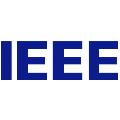We investigate the connection between the complexity of nonlocal games and the arithmetical hierarchy, a classification of languages according to the complexity of arithmetical formulas defining them. It was recently shown by Ji, Natarajan, Vidick, Wright and Yuen that deciding whether the (finite-dimensional) quantum value of a nonlocal game is $1$ or at most $\frac{1}{2}$ is complete for the class $\Sigma_1$ (i.e., $\mathsf{RE}$). A result of Slofstra implies that deciding whether the commuting operator value of a nonlocal game is equal to $1$ is complete for the class $\Pi_1$ (i.e., $\mathsf{coRE}$). We prove that deciding whether the quantum value of a two-player nonlocal game is exactly equal to $1$ is complete for $\Pi_2$; this class is in the second level of the arithmetical hierarchy and corresponds to formulas of the form ``$\forall x \, \exists y \, \phi(x,y)$''. This shows that exactly computing the quantum value is strictly harder than approximating it, and also strictly harder than computing the commuting operator value (either exactly or approximately). We explain how results about the complexity of nonlocal games all follow in a unified manner from a technique known as compression. At the core of our $\Pi_2$-completeness result is a new ``gapless'' compression theorem that holds for both quantum and commuting operator strategies. Our compression theorem yields as a byproduct an alternative proof of Slofstra's result that the set of quantum correlations is not closed. We also show how a ``gap-preserving'' compression theorem for commuting operator strategies would imply that approximating the commuting operator value is complete for $\Pi_1$.
翻译:我们调查了非本地游戏的复杂性和计算等级之间的联系, 一种根据计算公式定义的复杂程度对语言进行分类的方法。 最近Ji、 Natarajan、 Vidick、 Wright 和 Yuen 显示, 决定非本地游戏的( fite- situ) 量值是$ 美元, 还是$\ frac{1\ {1\\ 2} 美元, 这对类来说是完整的 $\ sigma_ 1美元( e., $\ mathsf{re} 美元 )。 Slofstra 的结果是, 决定非本地游戏的通勤操作员值是否等于$ 1美元 美元 。 用于计算等级的第二个等级是 compalalal 等级, 并且与表格 $xxxx 的通货运算值是否等于 美元 。 运行一个更精确的运算结果是, 运行员的运行员的硬值是 。



